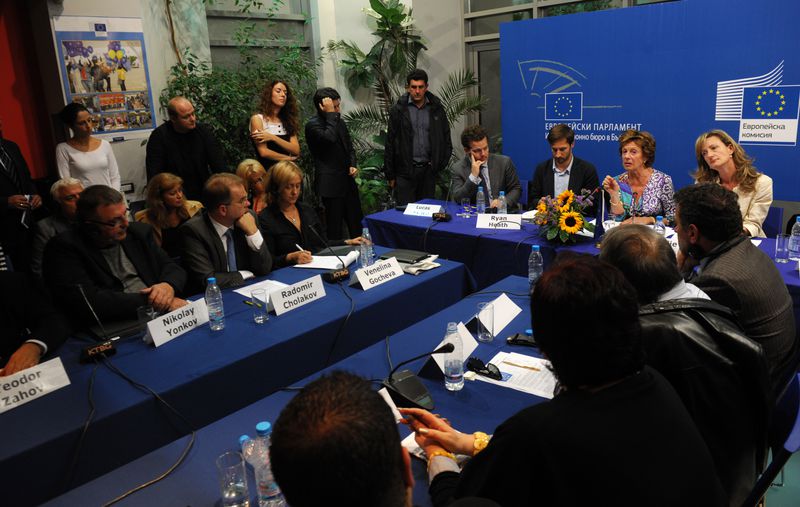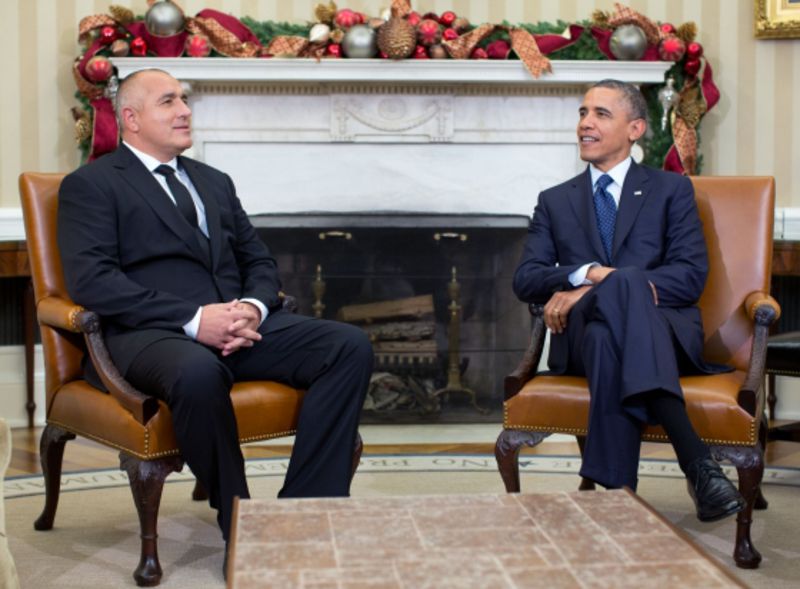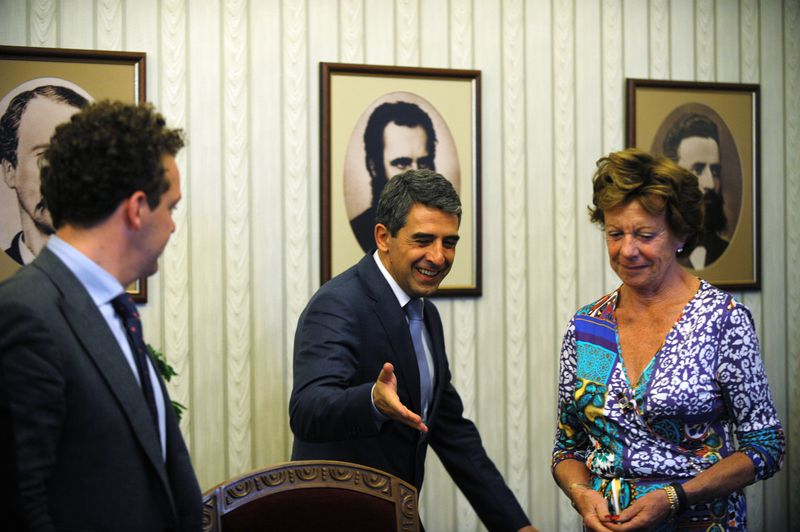Bulgaria Should Go Back to Primary School
Adelina Marini, December 6, 2012
 At the time when Boyko Borissov was a mayor of Sofia, his relationship with media could be defined as a simple falling in love that was to pass quickly. Alas, that love turned into a relationship where it is not quite certain whether one of the partners is still a voluntary participant (media). The situation is threatening the actually small achievements of Bulgaria during the hesitant transition from communism to democracy and market economy. "Media freedom is a pillar of democracy", say developed democracies. "I have deep concerns about the state of the media in Bulgaria", said Neelie Kroes, EU commissioner responsible for media and digital agenda.
At the time when Boyko Borissov was a mayor of Sofia, his relationship with media could be defined as a simple falling in love that was to pass quickly. Alas, that love turned into a relationship where it is not quite certain whether one of the partners is still a voluntary participant (media). The situation is threatening the actually small achievements of Bulgaria during the hesitant transition from communism to democracy and market economy. "Media freedom is a pillar of democracy", say developed democracies. "I have deep concerns about the state of the media in Bulgaria", said Neelie Kroes, EU commissioner responsible for media and digital agenda.
In the end of October she wrote a special letter to Prime Minister Borissov, quoted by the Bulgarian daily Capital, in which she tells him: "I very much appreciate the fact that you spontaneously admitted that the situation with transparency of media ownership in Bulgaria is unsatisfactory and have agreed with me about the need for urgent reaction. I'm impatient to understand what measures you and your government intend to undertake". The letter was sent on the occasion of the meeting Neelie Kroes had in Sofia in the end of September under the initiative of a group of journalists, among which euinside too. During that meeting, in which all representatives of the newspaper industry in the country, journalists, bloggers and civil active people took part, the commissioner conveyed several messages, of which the key one I think is the following:
"There are many factors that contribute to a positive dynamic between media and
democracy. It is not always about the law. A country can have a good law – but if it is
- abused or not enforced, or;
- there is a culture that encourages forms of self-censorship, or;
- there is a lack of transparency about how the sector operates, then the law alone cannot solve that problem".

Hardly Commissioner Kroes expected that her impatience to understand what measures will Mr Borissov undertake (or has taken) will be rewarded so soon. In an interview [in Bulgarian] with a medium with contestable reputation, on the occasion of the visit of the Bulgarian prime minister in the EU, Mr Borissov says: "I understand, especially those media whom we have deprived of their sponsors by removing the gas delivery intermediaries and others with corporate interests". This statement of the premier is more than shocking because it implies quite publicly about a pursuit of media that are not "in love" with him and his achievements.

Shocking because Bulgaria is still too far from the implementation of reforms it committed to implement when it joined the EU. And that implementation needs free and independent media that can require accountability from the Bulgarian authorities, no matter which political party is in power.
Let's remember why Bulgaria is with a mechanism in the area of justice and home affairs. In its July report of 2006 when Bulgaria expected to receive the long-awaited "we are waiting for you in the EU as of 1st of January 2007", the Commission wrote the following: "The area of freedom, security and justice and the internal market, created by the Treaty on European Union and the Treaty establishing the European Community, are based on the mutual confidence that the administrative and judicial decisions and
practises of all Member States fully respect the rule of law", because "The European Union is founded on the rule of law, a principle common to all Member States. [...] The remaining issues in the accountability and efficiency of the judicial system and law enforcement bodies warrant the establishment of a mechanism for cooperation and verification of the progress of Bulgaria to address specific benchmarks in the areas
of judicial reform and the fight against corruption and organised crime".
Is there rule of law in Bulgaria? No, there isn't! And there is no way there to be until a prime minister can afford to publicly announce that he is pursuing critical media by depriving them of funding.
Neelie Kroes said in Sofia before the representatives of Bulgarian media and the civil society that she came to listen and that there weren't many things she could do. euinside proposed something, however, that the Commission can do and which was adopted by the Association of European Journalists in Bulgaria - adding media environment to the Control and Verification Mechanism because they are quite related. As we wrote before, the problem with media is not only a Bulgarian one, it is European problem, too, because of the situation in Hungary and Romania.

On November 26th Commissioner Kroes wrote in her blog that she continued to be very concerned about the media situation in Hungary and that she expected "Hungary to not only continue its dialogue with the Council of Europe but to take rapid further action. In other words, it is not enough for the government to say it is in talks with the Council of Europe. These actions are essential for Hungarian democracy, and also to assure investors about a stable political climate and a safe investment environment in Hungary".
The Council of Europe (CE) is an international organisation, separate from the EU, which serves as a preparatory level for membership to the Union. Membership in the CE is open for all European countries that want European integration, accept the principle of rule of law and are capable and willing to ensure democracy, fundamental human rights, is the mission of the CE. So, the fact that Hungary is sent back where it was 20 years ago (the country became a member of the CE on 6th of November 1990) is quite telling. Bulgaria walked the same path - through the "training" of the CE after it became a member on the 7th of May 1992. The situation with media and the complete lack of reforms in the judiciary require Bulgaria to return on the school desk. Where the risks for democracy were either overlooked or remained hidden. Otherwise, the EU risks its entire reputation of a motivating democratic changes force. And this must be required urgently because media in Bulgaria are now officially threatened. By the prime minister.